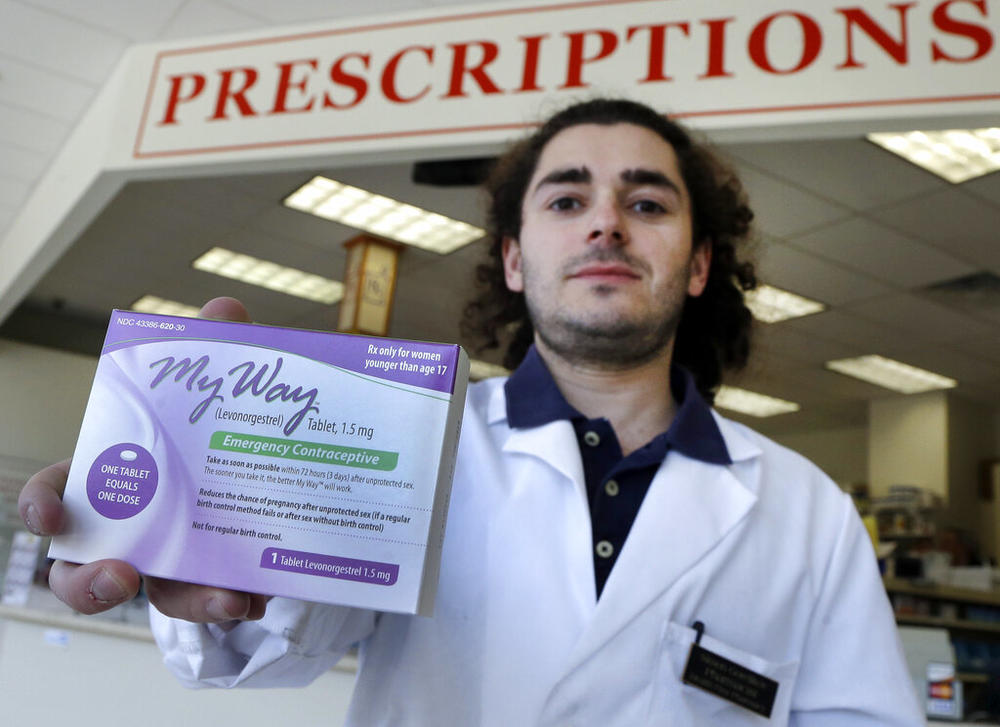
Caption
Emergency contraception is a time-sensitive medication. The sooner a person takes the drug after having sex, the more likely it will work at preventing an unwanted pregnancy.
Credit: (AP Photo/Elise Amendola)
|Updated: June 30, 2022 5:37 PM
A letter published in the Journal of the American Medical Association says the number of people searching for “abortion pills” spiked after the SCOTUS leak in May, and that number will likely rise now that the Supreme Court has overturned Roe v. Wade. GPB’s Ellen Eldridge reports.

Emergency contraception is a time-sensitive medication. The sooner a person takes the drug after having sex, the more likely it will work at preventing an unwanted pregnancy.
Georgia was one of the top 10 states where people used Google to search for abortion medications following a draft Supreme Court of the United States majority opinion leak.
That leak stirred outrage foreshadowing the decision to overturn the 1973 Roe v. Wade decision and allow states to further restrict or ban abortions.
Internet searches for abortion medications reached record national highs following the court's leak and were more common in states with restrictive reproductive rights.
Concerns about lost access to legal abortions may have led to the public educating themselves about how to obtain abortion services, according to a research letter published in the Journal of the American Medical Association.
The authors retrieved information about internet searches in the United States that mentioned "abortion pill" or abortion medications (mifepristone/mifeprex, misoprostol/cytotec) from Jan. 1, 2004, which is when Google began collecting data, through May 8, 2022.
Elevated interest could mean patients are pursuing this option with or without their doctor’s input.
But even with a prescription, finding the medication in Georgia could be difficult. A recent study led by the University of Georgia’s Rebecca Stone said many Georgia pharmacies don’t have the pills in stock — especially in rural areas.
Only 57% of Georgia pharmacies stocked the emergency contraceptive Plan B, which is also known as levonorgestrel. In rural parts of the state, only 46% of pharmacies had the medication in stock as opposed to 63% in metro areas.
"Rural areas have a real opportunity to help expand access to these meds," Stone said. "And we want to make sure that we support pharmacists and pharmacies keeping them in stock, making sure they're accessible and, you know, making sure that we're giving patients all their options."
MORE:
Plan B is most effective in the first three days after sex, but the emergency contraception can help prevent pregnancy for up to five days. That's because, similarly to birth control pills, Plan B prevents the release of an egg from the ovary.
Delaying the egg's release gives the sperm time to dissipate after sex, and then the sperm and the egg never have a chance to meet, which is also part of why it's so important to take emergency contraceptive pills as soon as possible after sex, Stone said. Once the eggs release from the ovary, then emergency contraceptive pills don't work at all anymore.
In the setting of limiting abortion access, Stone said, "I think it's even more important that we expand how women can get contraceptives, which includes emergency contraceptives."
JAMA says it’s imperative to have information available about where to obtain abortion medications legally and safely.